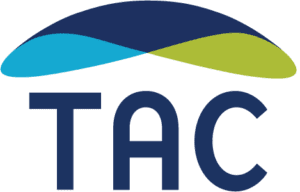Communities Work Quickly to Distribute Emergency Housing Vouchers
Through the Emergency Housing Voucher (EHV) program established by the American Rescue Plan Act of 2021, the U.S. Department of Housing and Urban Development (HUD) is providing 70,000 housing choice vouchers to local public housing authorities (PHAs) for individuals and families who are homeless or at risk of homelessness; are fleeing or attempting to flee domestic violence, dating violence, sexual assault, stalking, or human trafficking; were recently homeless; or have a high risk of housing instability. The vouchers have been issued to PHAs, but in order to ensure that households with the greatest need are assisted first, HUD requires each PHA to partner with a Continuum of Care and/or other organizations for direct referrals.
Housing and service providers recognize that these vouchers are an invaluable resource to help prevent homelessness for some of the people put at greatest risk by the COVID pandemic. To take full advantage of this opportunity, they have worked hard to adapt their programs, policies, and procedures in an impressively short time, under the challenging and constantly shifting conditions of a public health emergency. HUD has engaged TAC to provide technical assistance (TA) and guidance to communities as they work to maximize the value of the EHV program.
- TAC assists HUD in facilitating biweekly EHV Office Hours which typically highlight a specific topic and feature community presenters showcasing different aspects of their EHV implementation. HUD staff members are available during the Office Hours sessions to answer questions from participants.
- TAC has worked with HUD on a number of TA products to assist communities, such as the EHV Referral Packet Template, the EHV Waiver and Alternative Requirements Summary Table, and the EHV How-To Guide for PHAs. Additional products are in the works, including a white paper for victim service providers, a series of EHV road maps, and EHV success stories.
- Through direct TA engagements, TAC helps communities build partnerships; establish effective EHV referral processes; and conduct successful housing searches, including through landlord engagement. Communities with active engagements include New York City, Los Angeles County, New Orleans, Chicago, North Charleston, VA, and Grand Prairie, TX.
The TAC EHV team is anchored by Directors Marie Herb and Lisa Sloane, Senior Consultant Liz Stewart, and Senior Associates Nicole LiBaire, Emila Sutton, and Alison Korte.
Identifying What Works in Funding Recovery Support Services
This month, the Peer Recovery Center of Excellence at the University of Missouri, Kansas City engaged TAC to handle the state funding component of its Optimizing Recovery Funding project. The TAC team — led by Senior Consultant Rebecca Boss and Senior Associate Jordan Gulley, with support from consultants John O’Brien, Colette Croze, Victor Capoccia, and Neil Campbell — will conduct an analysis of the U.S. Substance Abuse and Mental Health Services Administration’s (SAMHSA) Substance Abuse Prevention and Treatment Block Grant recipients (states, territories, municipalities) to identify exemplary practices that support funding of recovery support services. Based on its findings, the team will make recommendations to SAMHSA for funding models that increase support for recovery community organizations and recovery services.
An International Exploration of Healing Trauma
TAC Executive Director Kevin Martone presented to a group sponsored by the Washington Ireland Program and the International Fund for Ireland, an independent organization founded by the British and Irish governments that has worked since 1986 to help heal Northern Ireland and bordering areas during and after 40-plus years of sectarian violence. The program convenes leaders from Northern Ireland and Irish border regions to examine policies and practices aimed at improving outcomes for communities dealing with division. Kevin shared insights into the behavioral health system in the U.S., with a focus on rural communities, youth, and intergenerational trauma, to inform the group’s strategies back home.


